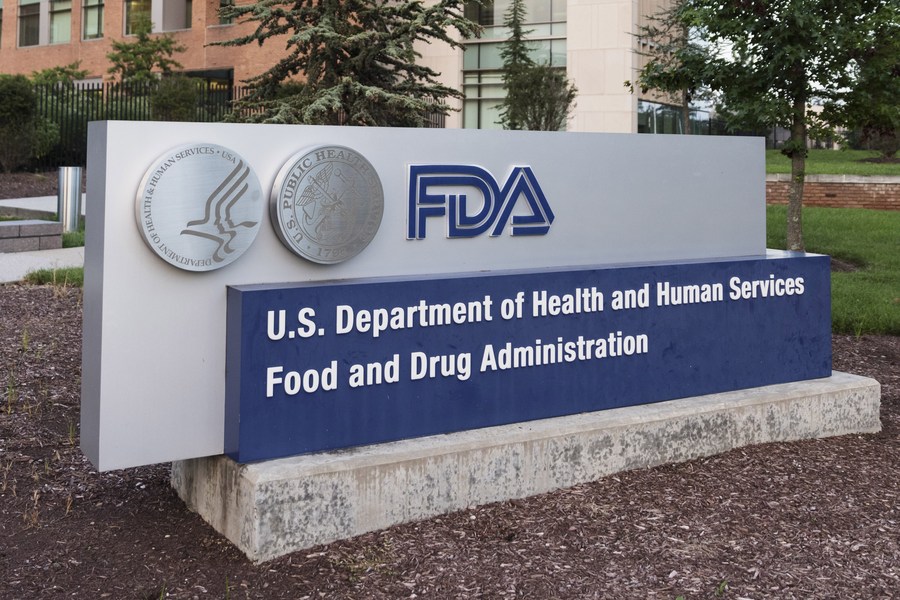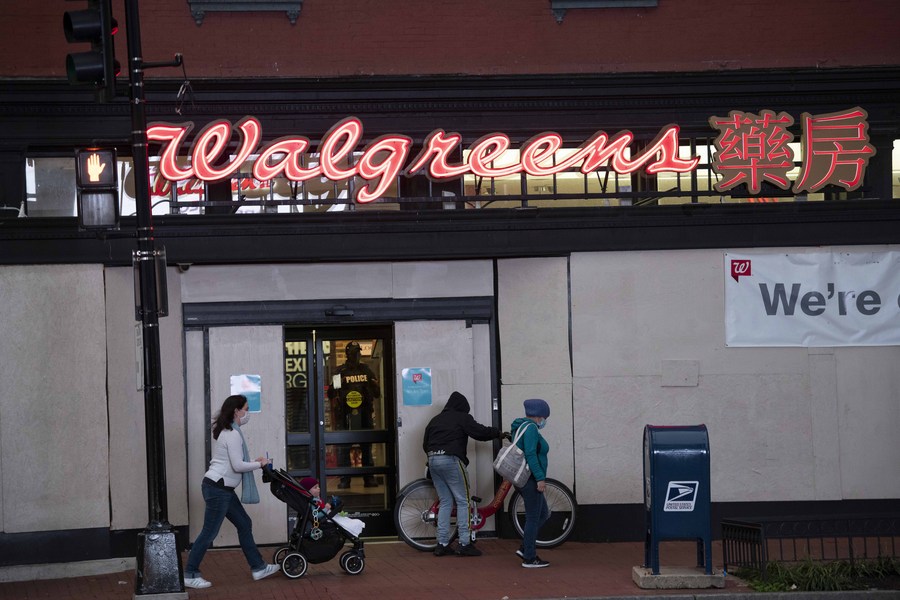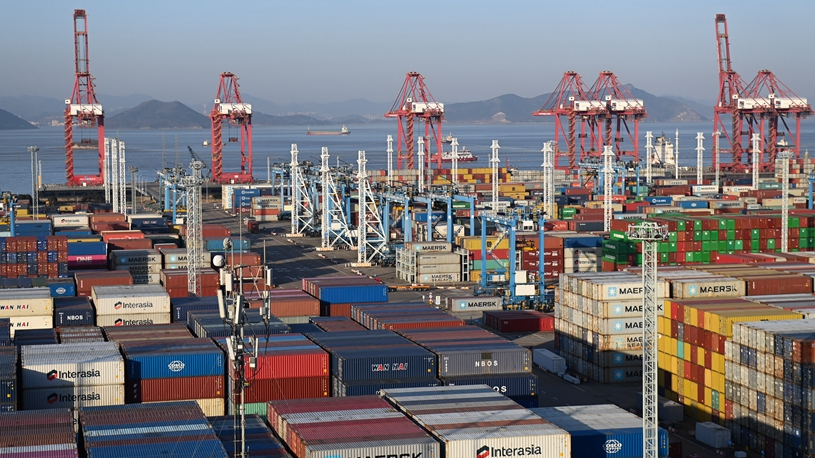
Photo taken on Aug. 23, 2021 shows the U.S. Food and Drug Administration in Silver Spring, Maryland, the United States. (Photo by Ting Shen/Xinhua)
More than 1,321 recalls were issued last year for human drug products that were defective or violated laws enforced by the U.S. Food and Drug Administration, "the highest figure in the past three years," USA TODAY said.
NEW YORK, Feb. 3 (Xinhua) -- More drugs were recalled last year in the United States and the annual price rise came with less impact this year, in the wake of three years of the COVID-19 pandemic with patients having to face a much paler health landscape.
LARGEST RECALL
More than 1,321 recalls were issued last year for human drug products that were defective or violated laws enforced by the U.S. Food and Drug Administration (FDA), "the highest figure in the past three years," said USA TODAY upon its analysis of FDA data.
Almost 90 percent of 2022 drug recalls were for problems the FDA said could cause a temporary health issue and posed only a slight threat of a serious nature, said the report.
An additional 10 percent of recalls were for products the FDA said are unlikely to cause any adverse health reaction but ran afoul of FDA labeling or manufacturing laws, it noted.
A total of 83 recalls last year were in the FDA's highest risk category, meaning they stemmed from drug problems the agency said "predictably could cause serious health problems or death," according to the report.
Most recalls happened because either a company discovered a problem, or the FDA raised concerns.
Only on very rare occasions does the FDA take legal action, typically against manufacturers that persist in marketing a defective product, said the newspaper.
"Only 29 of the 14,732 recalls that were issued since 2012, when the data was first published, were mandated by the federal agency," it added.
MILD PRICE RISE
With pharmaceutical companies hiking prices on nearly 1,000 drugs in January, some consumers might experience sticker shock next time they pick up prescriptions.

People walk past a pharmacy in Washington, D.C., the United States, on Nov. 12, 2020. (Xinhua/Liu Jie)
"Pharmaceutical companies raised list prices of 983 arthritis, cancer and other prescription drugs by an average of 5.6 percent at the start of this year -- restrained increases as the industry faces a new federal law aimed at lowering medicine costs," reported The Wall Street Journal (WSJ) on Friday.
"The price increases come as a new federal law requires companies to pay Medicare a rebate if they increase prices above the rate of inflation," said USA TODAY at the end of the first month.
Other Inflation Reduction Act provisions, such as capping Medicare recipients' out-of-pocket expenses at 2,000 U.S. dollars and allowing Medicare to negotiate the costliest drugs, haven't kicked in yet it noted.
Drugmakers usually begin a new year by raising the list prices of their products. After several years taking increases of 10 percent or more on certain medicines, the companies have moderated their moves more recently.
Major drug companies such as AbbVie, Pfizer and Bristol-Myers Squibb have raised prices so far, according to data provided by 46brooklyn Research, a nonprofit that researches drug pricing.
Drug affordability remains a top worry for consumers. About 3 in 10 people don't take a drug as prescribed over concerns about cost -- some don't fill prescriptions, others skip doses or sought cheaper over-the-counter medication, according to a Kaiser Family Foundation poll last year. ■












